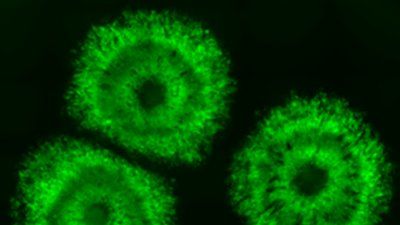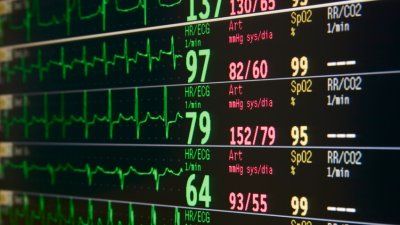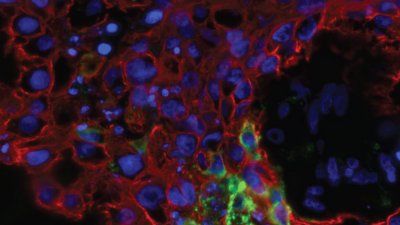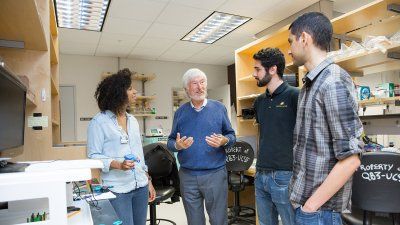Human Neuron Transplants Treat Spinal Cord Injury in Mice
Chronic pain and loss of bladder control are among the most devastating consequences of spinal cord injury.

University of California San Francisco
Give to UCSFChronic pain and loss of bladder control are among the most devastating consequences of spinal cord injury.

A digital assessment platform designed to look and feel like a video game may successfully flag children with attention disorders.

An interdisciplinary team of UCSF researchers, led by Xiao Hu, Michele Pelter and Richard Fidler from the UCSF School of Nursing, is working furiously to create and test a “super alarm.”

UC San Francisco’s Clinical and Translational Science Institute (CTSI) has received $85 million over five years from the National Institutes of Health (NIH) to continue to provide training, research support and other services, and to launch new programs aimed at diversifying the patients in research and advancing precision medicine.

Zika virus can infect numerous cell types in the human placenta and amniotic sac, according to researchers at UCSF and UC Berkeley who show in a new paper how the virus travels from a pregnant woman to her fetus.

A new UCSF study of top-rated mobile health apps showed that they offer little help to vulnerable patients – those who might benefit the most from these tools.

Using advanced imaging technology that allowed them to spy on interactions among cells in the lymph nodes of living mice, a research team led by UCSF scientists has identified a cell that is a key player in mounting the immune system’s defense against cancer.

Ten years after the QB3 Garage incubator launched, the idea has grown an innovation ecosystem and become the catalyst for state legislation that could help turn ideas at UC campuses into job-providing companies.

This week, the Diabetes Center at UCSF announced that it has embarked on a precision medicine initiative with Yes Health, an all-mobile program to prevent type 2 diabetes.

Personal voice assistants are increasingly used by smartphone owners for a range of health questions, but in a new study the telephone conversational agents responded inconsistently and incompletely to simple questions about mental health, rape and domestic violence.

A team of researchers at UCSF has devised a new approach for early stage drug discovery that uses techniques from the world of computer vision in combination with a powerful new tool.

We asked experts across UCSF to identify what's ahead in how we approach research, what disease areas will see major advances, and where basic science will be translating into real treatments.

If depression is caused by flawed brain circuitry, it may be possible to shift that circuitry toward healthy neural processing instead. UCSF researchers hope to map and correct aberrant neural behavior to cure mood disorders.

Building on the success of the Health eHeart Study at UCSF, the National Institutes of Health has awarded $9.75 million to UCSF over the next five years for creation of Health ePeople.

A new collaboration between Celgene Corp. and the Recombinant Antibody Network (RAN), a consortium comprising research groups from UCSF, the University of Chicago and the University of Toronto, will support the development of next-generation, antibody-based cancer therapies.
